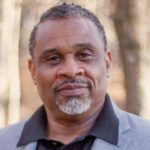*Editor’s Note: This is part 2 of 3 of an honest conversation about race between 3 friends: Dr. Michael Patterson, Angel Maldonado, and Jim Lenahan. All three are ministers. The conversation took place on Sunday, June 7, at The Path Church in Atlanta, GA. Here is Part 1 and Part 3.
ANGEL: So has everything been great once you got into the kingdom? What kind of racism issues have you encountered, even in the church?
JIM: When I became a Christian, I saw the kingdom as utopia. It was so great. People respected one another and I thought things were moving along great. I was thrilled to be a part of it. I was still a relatively young Christian (three, four years old in the Lord), and something happened which I couldn’t understand. I was on vacation and I got back and was told that the church had split.
When I got to church that Sunday, we were down to about half the usual crowd. But something worse than that: I would guess about 90% of the black brothers and sisters were gone, and this integrated church had become a predominately white church.
As a young Christian, I was like, what? The issue of the split didn’t have anything to do with race. So why did it split along racial lines?
And I came to realize that just because we were integrated didn’t mean we were culturally inclusive or culturally diverse.
The world is intrinsically tribal. And it’s divided based on ideologies or race or political position. That’s where the world is. That’s how the world divides. But the kingdom of God is supposed to be intrinsically universal. It’s supposed to be set on one agenda: to spread the love of Christ.
We want to share the love with everybody. Yet it seems like we are breaking down and becoming more like the world, and it’s dividing us.
MIKE: I think I started seeing racism more as I went into church leadership. That’s when I started seeing that there was a glass ceiling as to what a black minister could really do. Integrated churches might send out black missionaries, but there weren’t black church leaders.
Now, when I moved to New York City to help in the church, things were a little different. If you could do the job, you did the job, because in such a huge metropolitan area, you needed all hands on deck. There were some horrific events in NYC; it was rough racially.
The church had something that was different, but it was almost like we were in a bubble. We sometimes missed incredible opportunities to really help the church deal with underlying racial issues.
The first time I remember having a really good conversation about race was when our minister had moved to a neighborhood which was seeing a lot of protesting. He asked us why all the protesting, and I told him, it’s because they didn’t want black people in his area. White people were protesting the building of a mall which would attract black people from the Bronx to the area. Money wins, and it got built, and black people started going.
But what it did for our leadership group was it opened up the opportunity to have honest conversations about race.
One of the things I always appreciated about our minister was he would say, “I’m a middle-class white man. Help me understand what you’re feeling. Help me understand.” He would say, “I’m about to say this to the church. Help me understand how this would sound to a single mom in Harlem.”
ANGEL: So you and the leaders would have conversations about race but they didn’t usually go before the congregation. How did that limit the congregation’s maturity or spiritual maturity or ability to be a light?
MIKE: I think what it did, unfortunately, is that it prevented us from engaging as deeply as we could have. The Bible tells about speaking out for the fatherless, the oppressed, the alien. So we could have used our voice more, especially in a place like NYC.
I know at the time the philosophy was to be colorblind. We weren’t going to see color. That isn’t quite biblical because the Bible talks about the Ethiopian Eunuch, the Roman centurion Cornelius. We know that God sees color. After all, in Revelation 7:9, the vision of heaven is one of all nations, tribes, and tongues.
So the issue isn’t seeing color. The issue is treating people the way we want to be treated and making sure we’re treating that person with absolute humanity.
The weakness of the church trying to be colorblind is that we did not really go beyond what the world had set up. The nation integrated, and we didn’t go much beyond that.
I can honestly say some of the most hurtful experiences I’ve had with race have been in the church. I have no expectation for people in the world. They’re lost. But when it’s my brothers and sisters in Christ? That’s when it was very hurtful. When I moved to a ministry in Atlanta, I felt like the young black intern. That was really tough.
ANGEL: Even though you had been in the ministry for…?
MIKE: Probably about at that time 20 plus years. Some of the things that brothers would say were condescending. At times, I wondered if I was just hypersensitive. Maybe it was just me. I wanted to give them the benefit of the doubt.
When I started confronting brothers on certain things, they were like, “No, no, I don’t have those feelings.” But I was just baffled for a while because things weren’t adding up.
Around the time Obama was running for office, I struck up a friendship with a white man named Jimmy, and we started having some honest conversations about race. One day he said, “Listen, my folks are from Alabama. This is how I was trained as a white man. When I walk in a room, no matter who’s there, as the white man, I know the best. I know the most. I need to fix the problem. I’m in charge.”
And I said, “Thank you, Jimmy.” Because that’s what I had been feeling. He put words to the frustration I was feeling.












